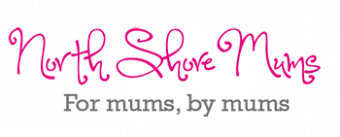Many Sydneysiders are wondering what coronavirus means for Sydney’s real estate market. COVID-19 is creating a huge amount of panic amongst Sydney-siders, and across the world. But should we be worried about the property market? Henny Stier, Buyers Agent from OH Property outlines her predictions.
Until the outbreak of coronavirus in Australia, Sydney real estate was on track to a forecasted 10% growth in 2020.
- Sydney dwelling values had recovered by 11.2% since bottoming out after the election in May 2019.
- Sydney house prices increased 6.7% over the last quarter alone, with Sydney seeing auction clearance rates consistently over 80% and many suburbs back up to peak level prices.
But over the past week, the global and national headlines have been grim.

The more the virus spreads, the bigger the impact on consumer confidence and the property market
Coronavirus and Sydney’s real estate market
There is no doubt coronavirus has had a massive impact in all our lives, including:
- The Dow Jones had its worst single-day point drop ever on record, worse than even during the GFC
- Trading on Wall Street was temporarily halted on Monday to prevent panic selling
- The oil market tumbled 30 percent overnight
- Qantas announced they would be reducing capacity by a quarter over the next six months
- All of Italy is in lock-down
- Many schools around the world (including Australia) have been shut to prevent the spread of coronavirus
- Global supply chains have been disrupted
But how is news of the coronavirus impacting Sydney’s estate market, if at all? What are the flow-on effects?
Sydney’s real estate market: The current state
- As Buyer’s Agents, OH Property have observed inspection numbers are trending downwards
- Some auctions of perfectly good properties are being Passed In with no bids, or only one bid, as buyers hesitate
- Many properties, especially rare ones and outstanding ones, are still selling very strongly due to pent-up demand
- First home buyers are still out in force and this price point is still performing strongly, thanks in part to record low interest rates
- Some sellers report bringing forward the sale or auction of their home, concerned about the impact of coronavirus if they wait
- Most selling agents are aware of the uncertainty in the marketplace – but few will admit it, as they fear fueling existing uncertainty
Sydney’s real estate market: What’s next?
The property market typically lags the stock market by 2-3 months, so the full impact of coronavirus is yet to filter through.
Whether market jitters turn into a full-blown crisis depends on:
- The length and severity of the outbreak
- The likelihood of finding a vaccine or a cure
- Public perception of whether the Government is managing the situation competently
A lot of the outcomes revolve around how much containment is achieved. The more the virus spreads, the bigger the impact on consumer confidence. This will affect the turnout at open inspections and auctions, as people may be fearful commiting to a big investment in uncertain times.
The worst-case scenario is the virus causing the economy to slow significantly, increasing unemployment, decreasing consumer demand and causing some house buyers to miss repayments – accelerating a slide into recession.
Real estate demand is heavily correlated with employment figures – so heavy losses of jobs will have a negative impact on house prices. People are hesitant to even buy a new car during a recession, let alone a house.
Some people may be at higher risk of economic impact, in particular, those working in hospitality, travel, food and beverage, retail, tourism, and international education. Some of these sectors are already experiencing difficult times and people working in these jobs may be worried about job security and unlikely to want to commit to buying a property now. Likewise, the prestige end of the market is expected to pull back because many high-income earners, such as bankers, rely on bonuses and stock-market performance to trade up on the property ladder. These buyers are often opportunistic buyers who buy when they see something better and not necessarily because they desperately need a house.
If the real estate market slows down dramatically, supply might also drop. Only vendors who really need to sell will list their properties. Others might just stay put and do nothing.
Coronavirus and Sydney’s real estate market: What can we do?
How Australia (and the world!) fare through coronavirus will depend upon the public health response and effectiveness of the fiscal stimulation packages that respective governments will put forward.
Incentives for new buyers, record-low interest rates and special offers from lenders will hopefully boost market sentiment.
These joint public and private sector relief measures need to be substantial and swift to curb the economic shock. For example, the Italian Government has announced that all first-home mortgage payments in Italy are to be suspended – possibly for up to 18 months. Italians will also get a tax holiday to avoid driving people, especially the self-employed, into bankruptcy. Until and unless Australia sees similar bold steps, the housing market may struggle to keep up its current momentum.
What are the opportunities?
When it comes to housing, the reality is, no one has a crystal ball. It is very difficult to pick when a market may turn. For example, the stunning bounce-back post-election took everyone by surprise, and no one thought prices would turnaround so drastically in such a short period of time.
At the end of the day, everyone needs a roof over their heads, so there will always be demand for housing; and as the stock-market bounces up and down, many investors may consider bricks and mortar real estate as an alternative and less volatile investment vehicle.
- Remember to focus on being highly discerning with what you buy. If you buy the wrong property now or overpay in the process, it can set you back financially.
- Don’t be scared: Home buyers and long-term investors who have a secure job and pre-approved finance should not be scared to take advantage of any short-term downturn in our property markets to set themselves up for the next phase of the property cycle.
- If you are risk averse, sell before you buy. The best way to minimise risks is to sell and buy in the same market and to keep that lag time to a minimum.
And remember, the underlying fundamentals supporting our property markets in the medium to long term are sound. Try not to get lost in the news headlines and you will see this for yourself.
Read more from Henny here, Property Q&A: Ask your buying, selling or renting questions here!












